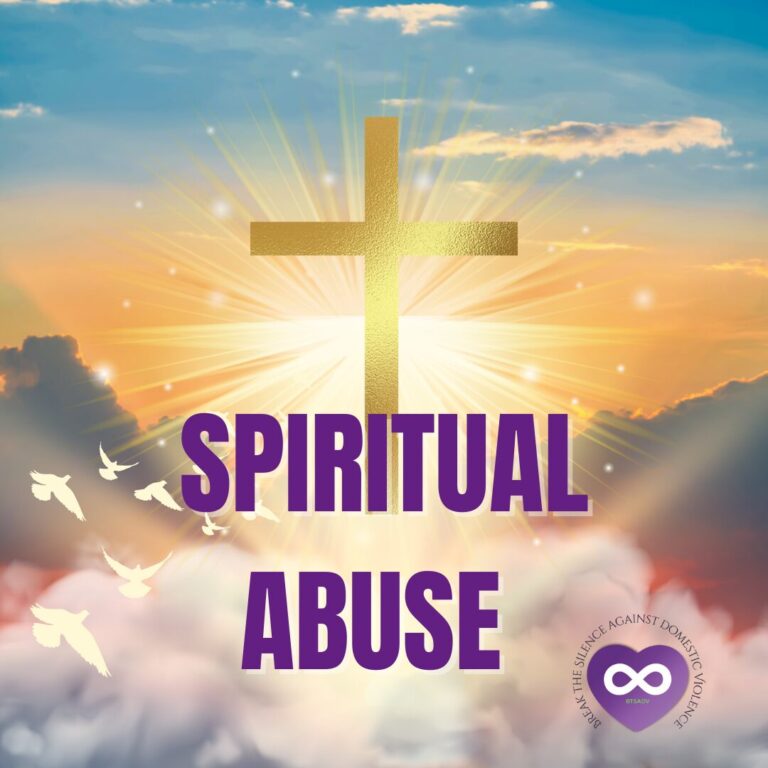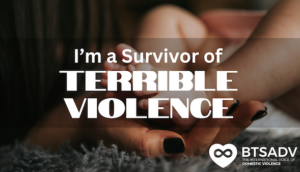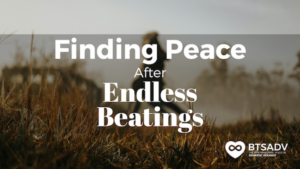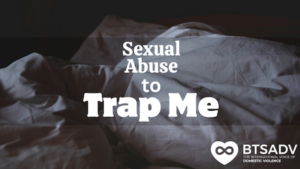By Stephanie Smith
Survivors of domestic violence often identify deeply with their spirituality, viewing faith as a source of strength and comfort. A significant number of these survivors turn to God or their religious communities for emotional and spiritual healing. Yet, for many, the teachings of their faith or the reactions of their spiritual leaders may become barriers to finding freedom and safety. While one’s relationship with God or a higher power can offer profound strength, the response of the religious community can sometimes feel like a devastating roadblock.
When Your Abuser is in Your Faith Community
What happens when your abuser is also a member of your church or faith community? Can you rely on your pastor or church leaders to protect and support you? Ideally, clergy should hold abusers accountable, but in many cases, this does not happen. Survivors of domestic violence should never have to choose between their safety and the community they have relied on for support. Unfortunately, this is often the reality.
Faith communities, intended to offer a sanctuary, may instead require survivors to walk away from their only support network. This is a heartbreaking choice that can feel overwhelming, especially when it means severing relationships built over years or even decades. Additionally, survivors risk being ostracized if their claims are not taken seriously or, worse, spread through the community gossip. Much like victims of sexual assault who are blamed for what they wore, survivors of domestic violence can find themselves blamed, shunned, or excommunicated.
Finding Spiritual Strength During Crisis
Faith can still be a vital tool for healing from abuse, but when community support falls short, survivors may need to cultivate an internal relationship with their spirituality. In these moments, it’s essential to dig deep into your inner strength and hold onto your sense of self-worth. Even without the physical presence of a spiritual community, your connection to the Divine can remain a powerful source of solace and guidance.
Recently, a friend shared her own struggle within her religious community. Desperate to help her daughter, who was enduring escalating abuse, she sought assistance from her church. Her daughter was unable to receive food from the church’s pantry because she lived just outside the geographical area. The local women’s center also denied her services for the same reason. As her daughter’s situation worsened, my friend was met with indifference from her religious leaders. They preached about a relationship with God but ignored her pleas for practical help. This experience is not unique, and survivors often find themselves abandoned by the very communities they once trusted.
Spiritual Support in Times of Desperation
The question arises: How can you maintain your faith when your spiritual community is absent in your time of need? The answer lies in recognizing your own Divine worth. Throughout religious texts, the importance of self-love is emphasized. “You must love your neighbor as yourself” (Matthew 22:39). The Quran also highlights the duty of not neglecting oneself.
For survivors, this is a crucial realization. In many faith traditions, people are taught to prioritize others at their own expense. This creates a belief that self-love is selfish or sinful. However, in reality, loving yourself is an act of honoring the Divine within. It is through nurturing your sense of worth and purpose that you can better serve others and heal from your trauma.
Reclaiming Divine Worth and Inner Peace
Where do we find the Divine within ourselves? What are the most angelic, celestial qualities we can embody to achieve inner peace? For many, the answer is found in innocence, joy, and compassion—qualities we often see in children playing peacefully together. This image of heavenly serenity is a reflection of what we can strive to nurture within ourselves.
In moments of crisis, it’s vital to focus on your inner work to alleviate suffering and promote healing. This requires incredible strength and deep compassion for yourself. As my 23-year-old daughter often reminds me, “Mom, you’ve got to love yourself.” While I understood the concept of self-love, I didn’t fully grasp how to embody it. There were still voices in my head telling me I wasn’t worthy, that I didn’t deserve love or peace. But I am learning—day by day—to have compassion for my past mistakes and forgive myself. This journey toward self-compassion is deepening my sense of purpose and love.
Loving Yourself as an Act of Divine Faith
In our faith journeys, it’s easy to lose ourselves in service to others, in attending sermons, singing hymns, and serving our communities. But true spiritual fulfillment comes when we recognize that we are part of the Divine. Our love for ourselves is a reflection of the love the Divine has for us. By focusing on that Divine love within, we become mirrors, reflecting it back to others. We are, in essence, the “eye of the Divine.”
Survivors of domestic violence must remember this: Your worth is not diminished by the neglect or abuse of others. The Divine sees you, loves you, and is within you. Cultivate that love within yourself and let it guide your path to healing and peace.
Keywords: domestic violence survivors, faith and abuse, self-love, spiritual healing, religious community, divine worth, inner peace
Hashtags: #FaithHealing #DomesticViolenceSurvivors #SpiritualityAndTrauma #SelfLove #DivineWorthy










